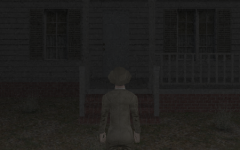Advertisement
WRET
Advertisement

Wret begins with a quiet arrival. Cameroon, seeking connection or perhaps distraction, agrees to participate in a five-day ritual at an unfamiliar house. The others are already present, yet no introductions are made. Everything proceeds in silence. There is no clear purpose, but the atmosphere suggests that something important is unfolding. Cameroon doesn’t question it—at first. He follows the unspoken routine, explores the house, and waits. But with each day, his sense of control slips.
Subtle Shifts, Growing Dread
The house changes without warning. One day, a window is sealed. Another, the hallway appears longer than before. The people around Cameroon do not speak or move, but their presence grows heavier. They watch. Cameroon feels it. Objects hum with quiet energy. The lights flicker when he walks by. Shadows stretch where they should not. The silence becomes oppressive. The ritual, once passive, now feels like it is watching him back.
A Growing List of Inexplicable Signs
As Cameroon moves through each day, he encounters:
- Rooms that reconfigure after sleep
- Sounds without clear origin
- Faces that seem familiar, but change slightly
- Items that pulse or emit warmth
- Invisible boundaries that were not there before
There are no instructions. Players are given no objectives. The only task is to stay, observe, and endure.
No Escape, Only Realization
By the fourth day, it is no longer clear if Cameroon is awake or dreaming. The line between ritual and trap dissolves. He is unable to confront anyone or even speak aloud. He can only observe the shifting reality and brace for the next change. The unease is not in what jumps out—it’s in what remains still, in what listens, and in what slowly changes its shape just out of sight.
The Fifth Day Reveals Nothing
When the final day arrives, there is no climax. No ending scene. Only acceptance. The house continues to shift. The observers remain silent. The ritual does not finish because it was never about a result. It was about presence, submission, and being watched. Wret delivers horror without explanation, relying on disorientation, absence, and slow unraveling to disturb more deeply than any scream.






















































































































































